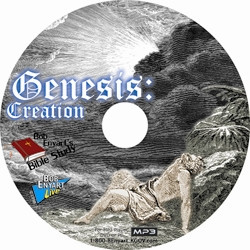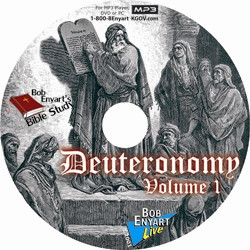ThThurs: Genesis Pt. 4
 Genesis-Creation: A rock cannot make itself and a fire cannot burn forever. Matter cannot come from non-matter and a perpetual motion machine cannot exist. Therefore, the universe could not have made itself from nothing, nor could it have always been moving, churning, working, and burning. Another way to state these first two laws of thermodynamics is that the physical universe must have had a supernatural Creator sometime in the recent past. This study presents the scientifically compelling Genesis story. Of all men, Christians more than any are able to weave the latest findings into our understanding of the fabric of the universe. Since God created the physical universe, good science reveals God. And while some say that you cannot prove the existence of God, the Bible tells us that the clear evidence of His personal, powerful, and eternal existence is manifest through the creation! Enjoy these studies!
Genesis-Creation: A rock cannot make itself and a fire cannot burn forever. Matter cannot come from non-matter and a perpetual motion machine cannot exist. Therefore, the universe could not have made itself from nothing, nor could it have always been moving, churning, working, and burning. Another way to state these first two laws of thermodynamics is that the physical universe must have had a supernatural Creator sometime in the recent past. This study presents the scientifically compelling Genesis story. Of all men, Christians more than any are able to weave the latest findings into our understanding of the fabric of the universe. Since God created the physical universe, good science reveals God. And while some say that you cannot prove the existence of God, the Bible tells us that the clear evidence of His personal, powerful, and eternal existence is manifest through the creation! Enjoy these studies!
The Genesis-Creation Bible study is available on MP3-CD or MP3 Download.

 Deuteronomy: Relive young Israel's crucial moments, from their refusal to enter the Promised Land to the miracles and battles of the desert years. The name Deuteronomy signifies the retelling of the law. And learn the major lessons and the nuances of the biblical law as Moses summarizes God's precepts and reiterates the Ten Commandments. What is the greatest commandment? What is the second greatest? And what laws do those two encapsulate? After the two most important tiers of law, of law toward God and law toward man, how should we understand the remaining laws like tithing and the symbolic regulations? Enjoy these studies!
Deuteronomy: Relive young Israel's crucial moments, from their refusal to enter the Promised Land to the miracles and battles of the desert years. The name Deuteronomy signifies the retelling of the law. And learn the major lessons and the nuances of the biblical law as Moses summarizes God's precepts and reiterates the Ten Commandments. What is the greatest commandment? What is the second greatest? And what laws do those two encapsulate? After the two most important tiers of law, of law toward God and law toward man, how should we understand the remaining laws like tithing and the symbolic regulations? Enjoy these studies!  Philippians: Bob Enyart's Bible study continues through the Paul's letter to the Philippians. The Philippians Bible study is available on
Philippians: Bob Enyart's Bible study continues through the Paul's letter to the Philippians. The Philippians Bible study is available on